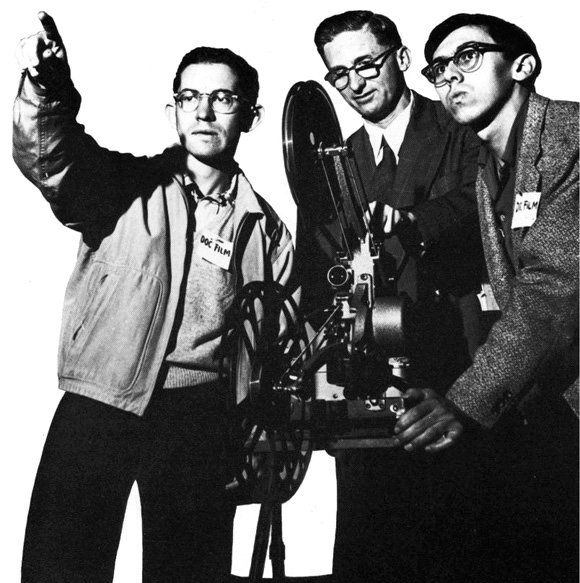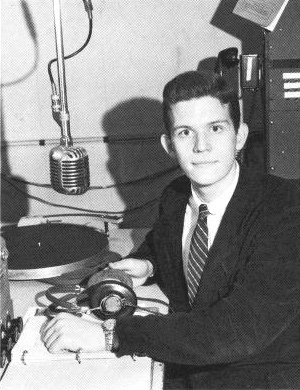Film and Radio
Financed by membership fees
and driven by a belief in film's heuristic powers, Doc Films, as it came
to be called, opened by showing documentaries to audiences of thirty to
forty students and ended the year with crowds of over two hundred students.
Doc Films later added feature films to its agenda, but it remained committed
to presenting movies which contained political and social criticism. Doc
Films was an outspoken proponent of film as an art, comparable to literature,
worthy of critique, open to experiment, and possessed with its own style,
grammar, and construction.
At the same time that Doc
Films encouraged the appreciation of film as a specialized art form, it
was careful not to lose the general audience for which the documentary
film series had first been created. As its staff noted in autumn 1962,
"we wish to provide a background of good films to serve as touchstones,
guardians against the critical indolence cum buttered popcorn to be induced
by theatres in [the film viewers'] future suburbias."
The Doc Films programs were soon joined by other ambitious student film efforts. Beginning in 1932, the International House Film Society sponsored a regular series of films, many of them the works of French, Russian, German, Chinese, and other foreign directors. Its recent schedules have continued this pattern together with a selection of contemporary American films. Across the Midway Plaisance, Law School Films in 1977 became the newest addition to the campus cinematic scene. Law School Films concentrated its programs on the exploration of the classic American studio products of the 1930s, 1940s, and 1950s.
Other students wished to
tap different forms of media for the benefit of the University community.
In January 1945 William Washington (Ex 1946), a math student, decided
that the University of Chicago needed a campus radio station to broadcast
and coordinate University activities and serve as a medium for student
thought. The Chicago Maroon expressed more amusement and skepticism
than support for his effort, stating that "student progress all innovation"
were impossible on campus.
Within a month, though, Washington and the station manager Henry Roy Ruby (Ex 1945) received University and Federal Communications Commission approval to begin a radio station, which would broadcast community activities, student news, discussions, and social events. WCHI, or "Radio Midway" as Ruby termed it, was set up on the second floor of Judson Lounge, and by October 1945 began circulating its programs to the rest of the campus via the steampipes of the University's heating system. Radio Midway was soon joined by W9YWQ, an amateur student radio station established on the third floor of Reynolds Club.
WCHI later changed its name to WUCB and in 1967, with the help of funds raised by the Owl and Serpent club and the Senior Men's Honor Society, emerged as an FM radio station, WHPK, which broadcast its programs on the air and specialized in jazz and folk music. Beginning with only ten watts of power, WHPK now broadcasts at 100 watts to the South Side of Chicago.

Doc Films assisted the Orientation Board in introducing new students to film on campus by presenting a special O-Week screening.

A determined Donald Miller operated the microphone for the annual WUCB marathon, during which staff members solicited pledges for the March of Dimes by staying awake as long as possible. Miller played music from the Pro Nausea ensemble and, as WUCB did every year after 1951, broadcast the farewell speech of President Hutchins. Photograph by Town and Country.
